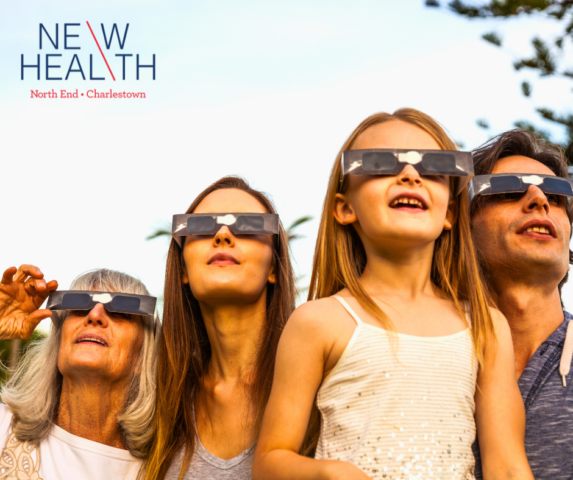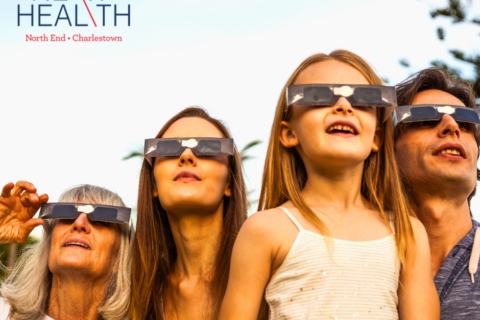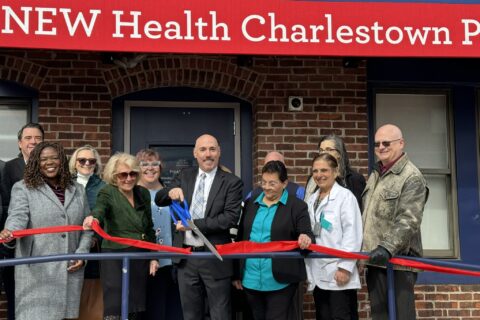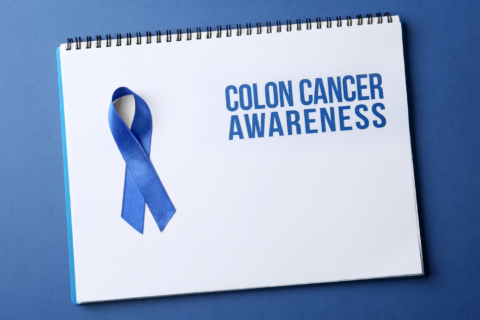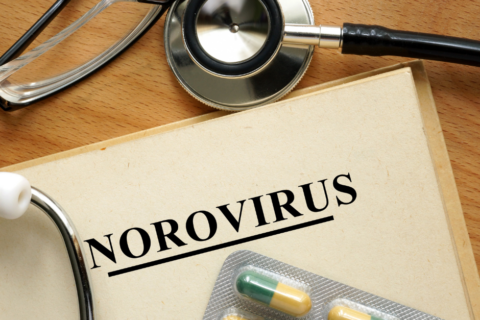On April 8, a total solar eclipse will cross the United States passing over Texas, and traveling through Oklahoma, Arkansas, Missouri, Illinois, Kentucky, Indiana, Ohio, Pennsylvania, New York, Vermont, New Hampshire, and Maine. To experience the event, NEW Health optometrists have come up with a guide for Solar Eclipse Safety so you can protect your eyes and prevent permanent damage.
Here are some important eye health considerations when viewing an eclipse:
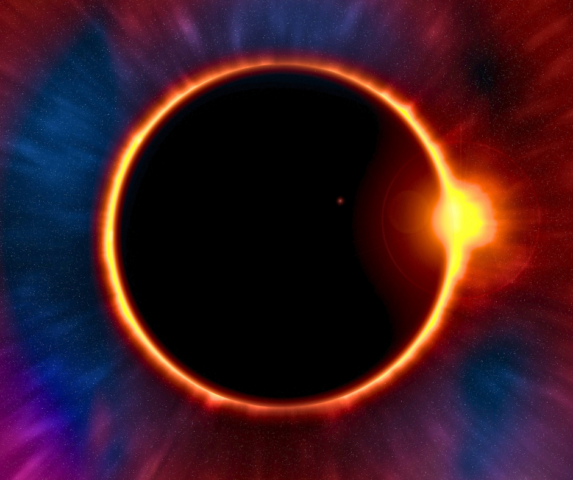
- Use Proper Eye Protection: Never look directly at the sun without proper eye protection. Use eclipse glasses or solar viewing glasses that meet the ISO 12312-2 international safety standard. These glasses are specially designed to filter out harmful ultraviolet, visible, and infrared radiation. Regular sunglasses, smoked glass, and polarizing filters are not sufficient for viewing an eclipse.
- Be aware of fake or counterfeit solar eclipse viewers: Counterfeit solar glasses that do not meet international safety standards may be available to purchase from a variety of vendors. For more information about solar eclipse glasses suppliers, visit https://eclipse.aas.org/eye-safety/viewers-filters
- Inspect Eye Protection: Before using eclipse glasses, inspect them for any scratches, punctures, or damage. If they are damaged in any way, do not use them, as this could allow harmful rays to reach your eyes.
- Supervise Children: Ensure that children understand the importance of using proper eye protection and supervise them closely to make sure they keep their eclipse glasses on during the event.
- Know the Risks: In general, you should never look directly at the sun without eye protection, even briefly. If you view the sun during a solar eclipse without proper solar eclipse protection, you may experience permanent vision loss from “solar retinopathy”, irreversible damage to the retinal tissue at the back of your eye. Looking directly at the sun during the eclipse is unsafe except during “totality”, the brief total phase of a solar eclipse when the moon entirely blocks the sun, which will happen only within the narrow path of totality. Depending on your location, you may or may not be in the path of totality and its duration will vary. Outside the path of totality, even when 99% of the sun is obscured during the partial phase of the eclipse, you must always use a safe solar filter to view the sun directly since the remaining crescent sun is still intense enough to cause retinal damage.
- Avoid Photography Risks: If you plan to photograph the eclipse, use a solar filter on your camera lens to protect both your eyes and your camera equipment. Never look through the camera’s viewfinder without proper protection while photographing the sun.
- Limit Exposure Time: Even with proper eye protection, limit the amount of time you spend directly viewing the eclipse to reduce the risk of eye strain or discomfort.
- Avoid DIY Solutions: Do not attempt to create your own solar viewing devices, such as using binoculars, telescopes, or camera lenses without proper solar filters. Improperly filtered devices can magnify the sun’s rays and cause permanent eye damage and vision loss.
- Use Projection Methods: If you don’t have access to eclipse glasses, consider using indirect viewing methods, such as pinhole projectors or solar viewing telescopes. These methods project an image of the sun onto a surface, allowing you to view the eclipse indirectly.
- Protect Your Eyes After the Eclipse: Even after the eclipse has passed, continue to use eye protection when outside, as prolonged exposure to solar radiation can still cause damage.
Visit your Doctor of Optometry. Schedule an appointment with an eye doctor at NEW Health for information about safely viewing the eclipse. If you experience any problems with your eyes or vision before or after the eclipse, our office will be able to provide you with the medical care you need.
To access additional information and educational materials on the solar eclipse, visit:
- https://www.aoa.org/healthy-eyes/caring-for-your-eyes/solar-eclipses?sso=y
- https://science.nasa.gov/eclipses/future-eclipses/eclipse-2024/
- https://eclipse.aas.org/eye-safety
- https://eclipsesunglasses.com/
By Crystal Lewandowski, OD, FAAO 4/2/2024

